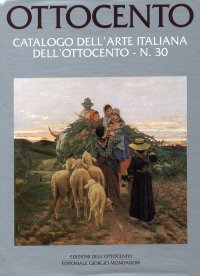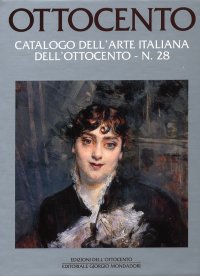Giovanni Boldini. Il Piacere
Rovereto, Mart, November 14, 2020 - February 28, 2021.
Edited by Beatrice Avanzi and Tiziano Panconi.
Genova, 2020; paperback, pp. 368, col. ill., col. plates, cm 24x28.
cover price: € 54.00
|
Books included in the offer:
Giovanni Boldini. Il Piacere
Rovereto, Mart, November 14, 2020 - February 28, 2021.
Edited by Beatrice Avanzi and Tiziano Panconi.
Genova, 2020; paperback, pp. 368, col. ill., col. plates, cm 24x28.
FREE (cover price: € 54.00)
Ottocento. Catalogo dell'Arte Italiana dell'Ottocento. Vol. 30
Milano, 2001; paperback, pp. 495, b/w ill., col. plates, cm 22x30,5.
FREE (cover price: € 40.00)
Ottocento. Catalogo dell'arte italiana dell'Ottocento. VOL. 28
Milano, 1999; bound, pp. 800, col. plates, cm 22x30.
FREE (cover price: € 77.47)
Constantinople Through the Lens of Achille Samandji and Eugene Dalleggio
Stamatopolulos, Kostas. M.
Umberto Allemandi
Greek Text.
Torino, 2009; clothbound in a case, pp. 508, b/w ill., cm 24,5x34.
Other editions available: English edition 88-4221601-8 Turkish edition 88-422-1602-5
ISBN: 88-422-1600-3 - EAN13: 9788842216001
Subject: Collections,Historical Essays,Photography,Towns
Places: Europe,Out of Europe
Extra: Ancient Greece
Languages: 
Weight: 3.56 kg











